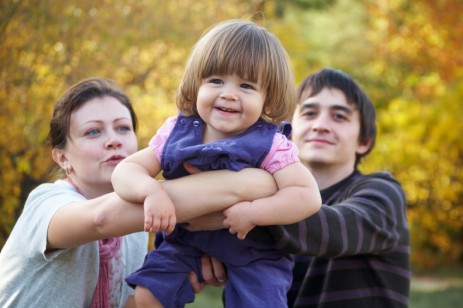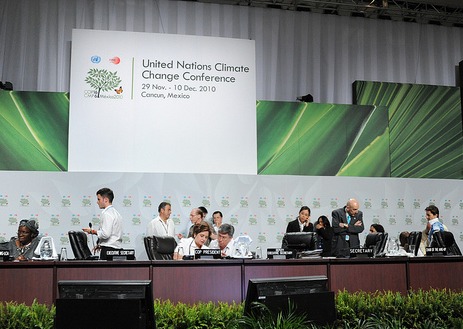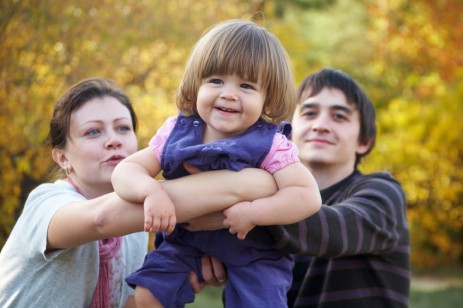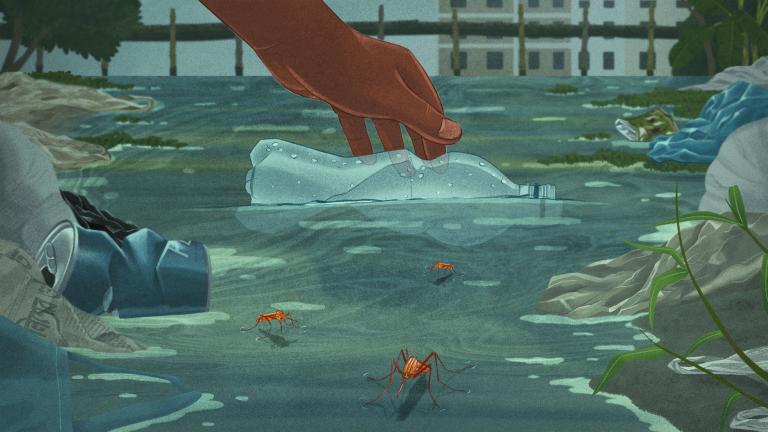 Deciding to be childfree doesn’t have to mean forgoing all the joys and oys of parenting. In a new piece in YES! magazine, Wendy Call describes her life as a co-parent — “not some new alternative but an old tradition,” she writes.
Deciding to be childfree doesn’t have to mean forgoing all the joys and oys of parenting. In a new piece in YES! magazine, Wendy Call describes her life as a co-parent — “not some new alternative but an old tradition,” she writes.
Call and her partner Aram are confirmed GINKs (green inclinations, no kids). But they’ve rejected the “stark” choice to either “become parents for every minute of every day, or not at all.” She and Aram are co-parents a few hours at a time, a few times a week, to the 3-year-old daughter of close friends and neighbors.
Aram and I are Lesley’s padrinos. The word translates as “godparents,” but the concept indicates something broader in Mexico [where Lesley’s parents are from]. Padrinos are responsible for everything a child’s parents can’t provide, whether that is a well-rounded meal, new clothes, child care, or a college education. Aram and I have started saving for that last one.
The experience of co-parenting Lesley has brightened their lives, but also “affirmed our decision not to have children,” Call writes. “As much as we adore her, and as willingly as we’d care for her full-time if necessary, we’ve never wished she were our child.”
Friends and acquaintances don’t know what to make of this arrangement. In contemporary American culture, we idealize the nuclear family, even as most of us don’t come close to attaining it (and growing numbers of us don’t even want it). We’ve got lots of single parents and divorced parents and stepparents. Why not add co-parents to the mix?
In a situation like Call’s, co-parenting can be great for everyone involved. Parents get some relief. Childfree people get to enjoy hanging out and bonding with a kid. And the kid herself gets extra love and attention. “Caring for children can be overwhelming, lonely, even frightening. Parents weren’t meant to go it alone,” Call argues.
Feminist author Erica Jong echoes that point in a recent Wall Street Journal opinion piece decrying the demands now put on mothers.
We … assume that “mother” and “father” are exclusive terms, though in other cultures, these terms are applied to a variety of aunts, uncles, and other adults. Kinship is not exclusively biological, after all, and you need a brood to raise a brood. Cooperative child-rearing is obviously convenient, but some anthropologists believe that it also serves another more important function: Multiple caregivers enhance the cognitive skills of babies and young children. Any family in which there are parents, grandparents, nannies and other concerned adults understands how readily children adapt to different caregivers. Surely this prepares them better for life than stressed-out biological parents alone.
Jong continues: “The first wave of feminists, in the 19th century, dreamed of communal kitchens and nurseries. … Our foremothers might be appalled by how little we have transformed the world of motherhood.”
Could co-parenting be both an environmental and a feminist answer to the question of how to raise kids in challenging times? Could it work for you? Should we set up a matching service for harried parents and kid-loving GINKs?




